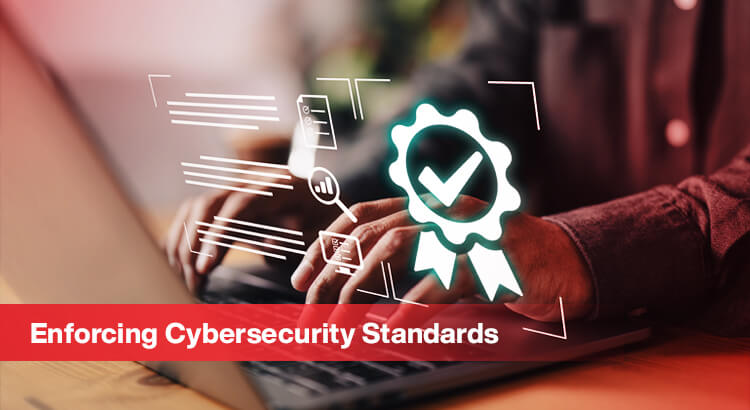The financial services industry is at the crossroads of innovation and cyber risk. As cyberattacks grow in sophistication, so do regulatory expectations. For India’s securities market, the Securities and Exchange Board of India (SEBI) has laid out strict cybersecurity mandates to help protect market integrity and investor confidence.
the Securities and Exchange Board of India (SEBI) has taken proactive steps to enforce cybersecurity standards across Regulated Entities (REs). With its Annexure-A mandates, SEBI aims to create a resilient security posture within the securities ecosystem.
But compliance is no longer just a checkbox. It’s a continuous process of proactive risk management, zero-trust enforcement, and identity security. And that’s where ARCON’s access control solutions become essential.
What is SEBI and whom it is meant for?
SEBI is the primary regulatory authority for the securities and commodity markets in India. Established in 1988 and given statutory powers in 1992, SEBI’s main objectives are to protect the interests of investors, promote the development of the securities market, and regulate its functioning.
The roles and responsibilities of SEBI include:
- Regulating Stock Exchanges: Ensuring fair practices and transparency in the stock markets.
- Protecting Investors: Implementing measures to safeguard investors’ interests and investments.
- Promoting and Regulating Self-Regulatory Organizations: Overseeing entities that regulate their own members.
- Prohibiting Insider Trading: Preventing unfair practices like insider trading.
- Conducting Investigations and Enforcing Regulations: Investigating violations and enforcing compliance with securities laws.
The regulatory authority of SEBI serves multiple stakeholders in the securities market:
- Investors: SEBI protects the interests of investors by ensuring fair practices and transparency in the securities market. This helps investors make informed decisions and safeguards them from fraudulent activities.
- Issuers: Companies that issue securities (like stocks and bonds) benefit from SEBI’s regulations, which ensure that they can raise capital in a fair and efficient manner.
- Intermediaries: This includes brokers, mutual funds, and other market participants who facilitate trading and investment. SEBI regulates these intermediaries to ensure they operate in a fair and transparent manner.
- Stock Exchanges: SEBI oversees stock exchanges to ensure they function smoothly and maintain market integrity.
- General Public: By maintaining a stable and transparent market, SEBI indirectly benefits the public by contributing to overall economic growth and stability.
The Need for Robust Compliance in the Securities Market
Brokerage firms, stock exchanges, asset management companies, and other REs process massive volumes of sensitive financial and personal data daily. To protect this high-value ecosystem, SEBI has emphasized:
- Implementation of Zero Trust architectures
- Strong authentication mechanisms
- Secure data protection and encryption protocols
- Rigorous privilege management and monitoring
- Real-time insider threat detection
Non-compliance may not only invite penalties but also erode investor confidence and business continuity.
How ARCON Empowers SEBI-Regulated Entities
ARCON | Privileged Access Management (PAM) plays a crucial role in ensuring compliance with the Securities and Exchange Board of India (SEBI) regulations. Here are some key points on how PAM contributes to SEBI compliance:
- Enhanced Security: PAM helps in securing privileged accounts, which are often targeted by cybercriminals. By managing and monitoring these accounts, organizations can prevent unauthorized access and potential data breaches.
- Access Control: SEBI regulations require strict control over who can access sensitive information. PAM enforces the principle of least privilege, ensuring that users only have access to the information necessary for their roles.
- Audit and Monitoring: PAM solutions provide detailed logs and audit trails of all activities performed using privileged accounts. This is essential for demonstrating compliance during SEBI audits and for investigating any suspicious activities.
- Policy Enforcement: PAM helps in enforcing security policies related to privileged access. This includes password management, session monitoring, and real-time threat detection, which are critical for maintaining compliance with SEBI guidelines.
- Risk Management: By implementing PAM, organizations can identify and mitigate risks associated with privileged access. This proactive approach helps in maintaining a secure environment and adhering to SEBI’s risk management requirements.
Conclusion
Compliance with SEBI is not just a regulatory checkbox—it’s a strategic imperative. ARCON’s cybersecurity solutions offer a comprehensive toolkit for aligning with SEBI’s mandates. With proven capabilities to Predict, Protect, and Prevent, ARCON ensures enterprises’ access governance strategy is future-proof and audit-ready.

